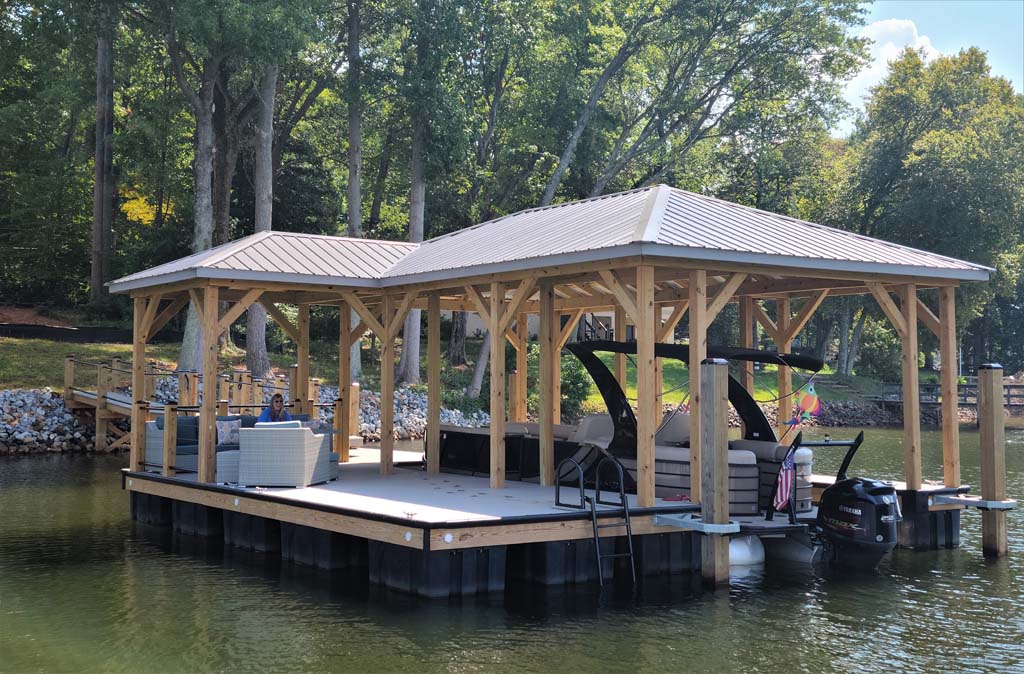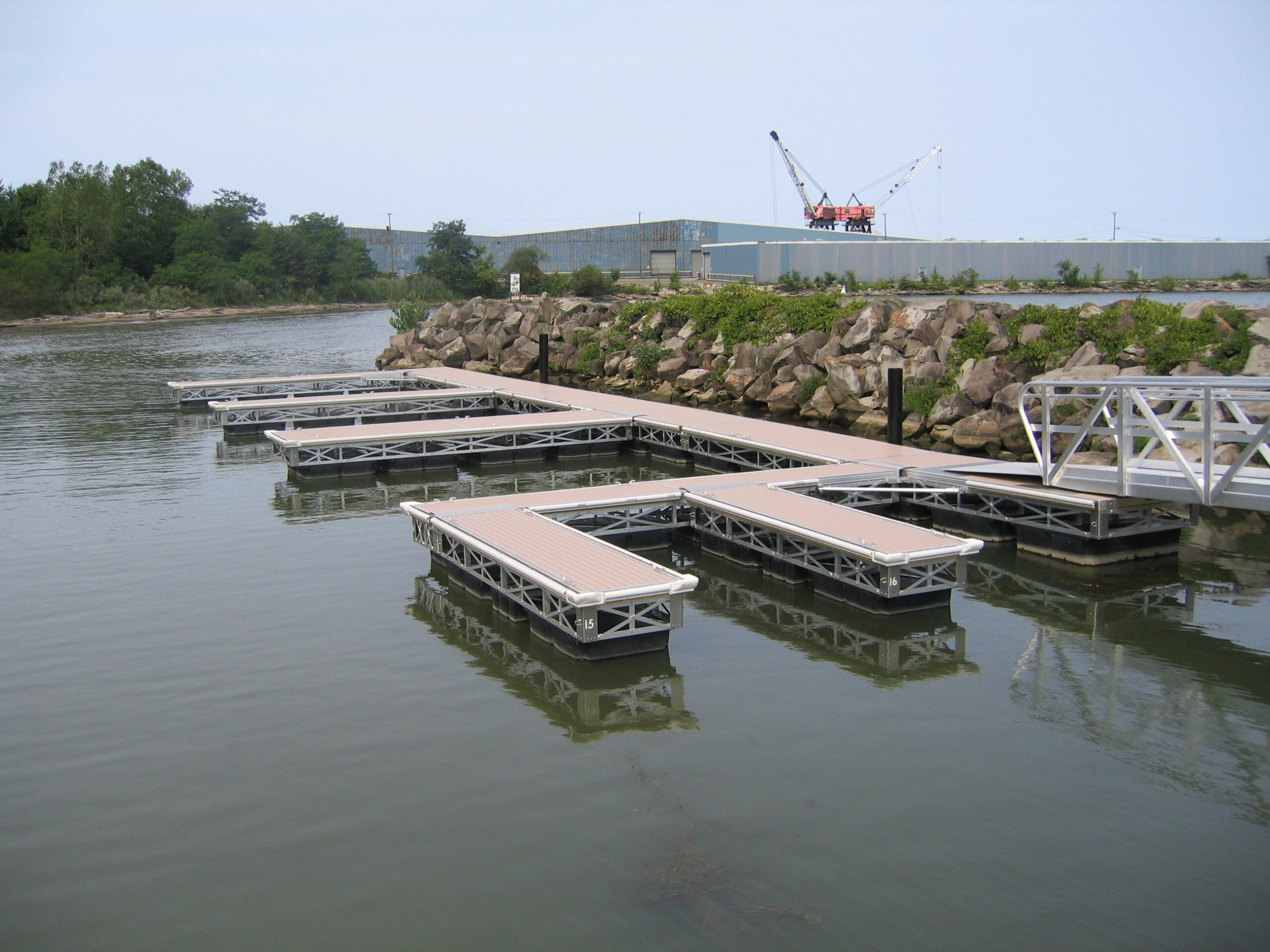Check out the Range of Floating Dock Providers Designed to Suit Every Sailor's Needs
Check out the Range of Floating Dock Providers Designed to Suit Every Sailor's Needs
Blog Article
Develop the Perfect Docking Service With Floating Docks
Floating docks present a functional option for a range of maritime demands, adjusting effortlessly to changing water degrees and varied vessel kinds. Their modular nature enables fast installation and moving, yet the selection of proper products and design attributes is important for making certain both capability and aesthetic allure. As we explore the crucial components that contribute to the efficiency of floating docks, several key factors regarding stability and upkeep will arise, raising inquiries about exactly how to enhance your docking experience. The succeeding discussion will brighten these vital considerations.

Advantages of Floating Docks
Floating docks deal many benefits that make them an excellent selection for various maritime applications. Among the key benefits is their flexibility to transforming water degrees. Unlike repaired docks, floating docks fluctuate with the tide, ensuring consistent access for vessels. This attribute is especially important in locations susceptible to considerable tidal fluctuations or seasonal water level adjustments.
Furthermore, floating docks are normally easier and quicker to mount contrasted to conventional set frameworks. Their modular style permits simple assembly and disassembly, helping with maintenance and relocation when needed. This flexibility is especially advantageous for short-term applications or in atmospheres where conditions may change.
Floating docks likewise tend to be more eco-friendly, as they lessen disruption to the seabed and surrounding marine ecological communities. Their buoyant nature minimizes the danger of damages to aquatic life, promoting a healthier setting. These docks can be tailored to suit various vessel sizes, guaranteeing that they meet particular operational needs.
Inevitably, the combination of adaptability, convenience of installment, and environmental considerations makes floating docks a very effective service for a wide variety of maritime demands.
Picking the Right Materials
Picking the proper materials for floating docks is important to guarantee longevity, resilience, and security. The choice of materials directly affects the dock's efficiency in different ecological conditions, including exposure to water, sunshine, and potential wear from aquatic website traffic.
Typical materials utilized for floating docks include light weight aluminum, timber, and high-density polyethylene (HDPE) Aluminum is lightweight, corrosion-resistant, and calls for minimal upkeep, making it an outstanding choice for longevity. Its initial cost can be greater compared to various other products.
Wood, while cosmetically enticing and providing a conventional look, can be susceptible to rot and pest damages if not correctly treated. Making use of pressure-treated wood or naturally durable types like cedar or redwood can reduce these concerns.
HDPE is a preferred selection as a result of its resistance to UV rays and chemicals, in addition to being environmentally pleasant. floating dock services. It is readily available and lightweight in numerous shades, permitting customization
Eventually, the right product selection will depend upon specific demands, consisting of budget plan, desired aesthetic appeals, and environmental factors to consider. Careful examination of these factors will certainly lead to a durable and effective floating dock service.
Style Factors To Consider for Stability
When designing floating docks, guaranteeing security is an essential aspect that can considerably impact their capability and safety. Stability in floating dock design is influenced by different aspects, consisting of buoyancy, weight circulation, and the arrangement of parts.
Weight distribution is important; equally dispersing loads across the dock prevents tilting and improves security. This can be accomplished with critical placement of docking equipment, such as cleats and fenders, in addition to correct spacing of floats. Furthermore, the dimensions of the dock ought to be attentively intended. Bigger layouts can offer enhanced stability, particularly in rough water conditions, while longer docks might need extra supports to prevent drooping.
Another key factor to consider is the environmental impact, consisting of wave action and wind. Including attributes such as sidewalls or skirting can assist mitigate the results of environmental pressures, preserving security in negative conditions. Eventually, a combination of thoughtful layout, material option, and understanding of environmental variables will generate a floating dock that fulfills both stability and safety and security demands.
Installation Tips and Strategies

Following, secure the needed permits and stick to local policies, which may determine setup techniques and environmental considerations. Engage a certified service provider experienced in floating dock installments if needed. Use premium materials designed for aquatic atmospheres to enhance their explanation resilience and longevity.
When placing the dock, straighten it alongside the coastline to assist in easy access. Make certain that the anchoring system is durable, using cinder block or helical supports to stabilize the dock versus wind and wave action. It's important to account for seasonal water degree changes, consisting of prospective ice movement in cooler climates.
Throughout the setup, double-check the dock's floatation and security before wrapping up the anchoring. Frequently examine the installment for any type of indicators of wear or damages. By following these suggestions and techniques, you can attain a protected, useful, and visually pleasing floating dock installation that satisfies your demands.
Maintenance and Care Guidelines
Caring and keeping for floating docks is critical to prolonging their life expectancy and making sure secure usage. Routine examinations should be conducted to identify any type of indications check that of wear, damages, or aquatic development. Seek cracks, loose fittings, or stained areas on the dock's surface, as these problems can jeopardize architectural honesty.
Cleansing is crucial. Use a pressure washer to remove algae, barnacles, and particles, which can accumulate over time. For stubborn growth, think about eco-friendly cleaning agents that won't damage water life.
Furthermore, check the mooring lines and anchors frequently to ensure they are secure and free from deterioration. Change any type of frayed or damaged lines without delay to preserve stability.
During severe weather, such as storms or freezing problems, take precautionary steps. Secure the dock with extra mooring lines and, if possible, get rid of any detachable components to avoid damages.
Verdict
Finally, the implementation of floating docks provides a reliable and flexible docking service ideal for numerous maritime applications. Their flexibility to changing water degrees, combined with a modular design, enables easy modification and moving. Selecting proper materials enhances both durability and aesthetic allure, while mindful factor to consider of security makes sure security and longevity. With appropriate installation and routine upkeep, floating docks can offer dependable and effective docking experiences for a variety of vessels.
As we check out the vital elements that add to the effectiveness of floating docks, numerous essential variables concerning stability and upkeep will arise, elevating concerns concerning just how to enhance your docking experience. Unlike repaired docks, floating docks rise and fall with the trend, making sure regular availability for vessels.When creating floating docks, making sure security is a fundamental facet that can substantially impact their functionality and safety and security. Security in floating dock design is influenced by numerous factors, including buoyancy, weight distribution, and the setup of parts. Eventually, a mix of thoughtful design, product selection, and understanding of ecological factors will certainly generate a drifting dock that satisfies both stability and security Check This Out requirements.
Report this page